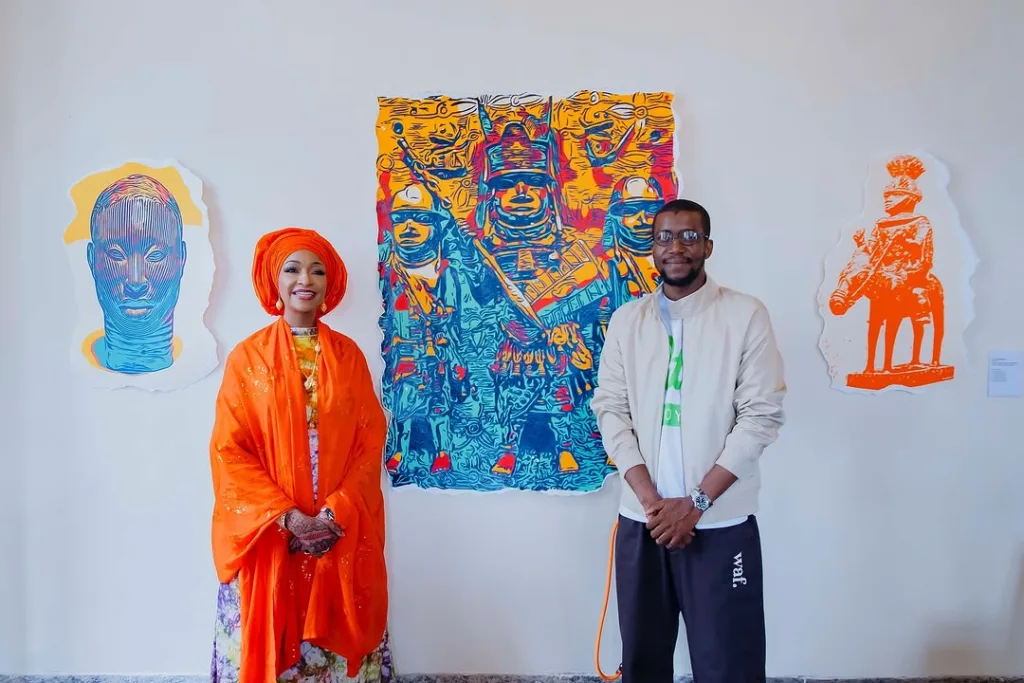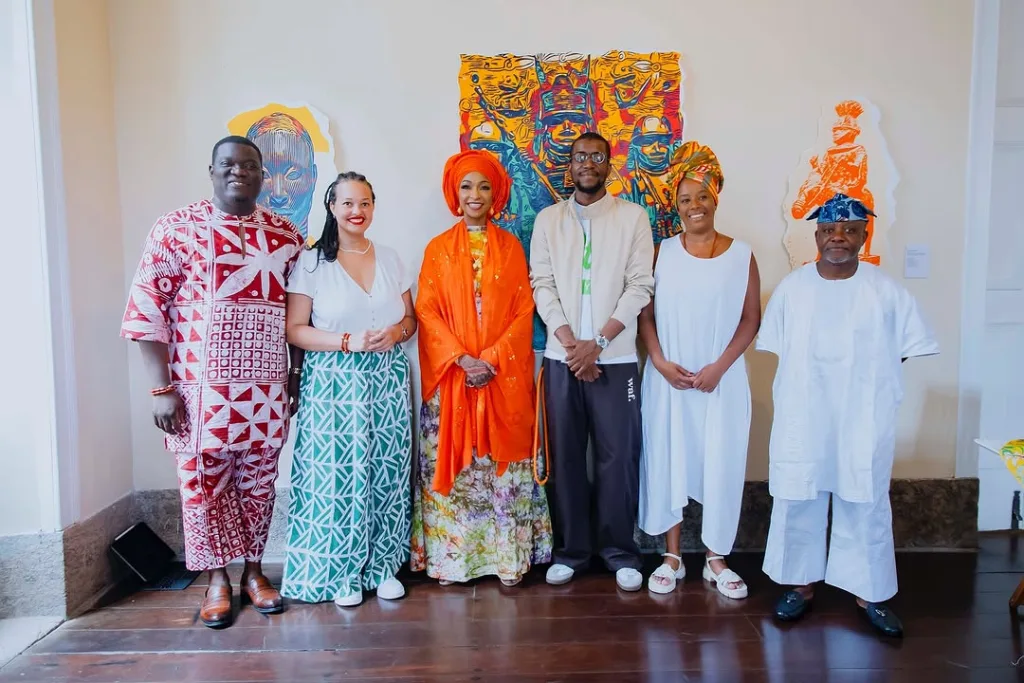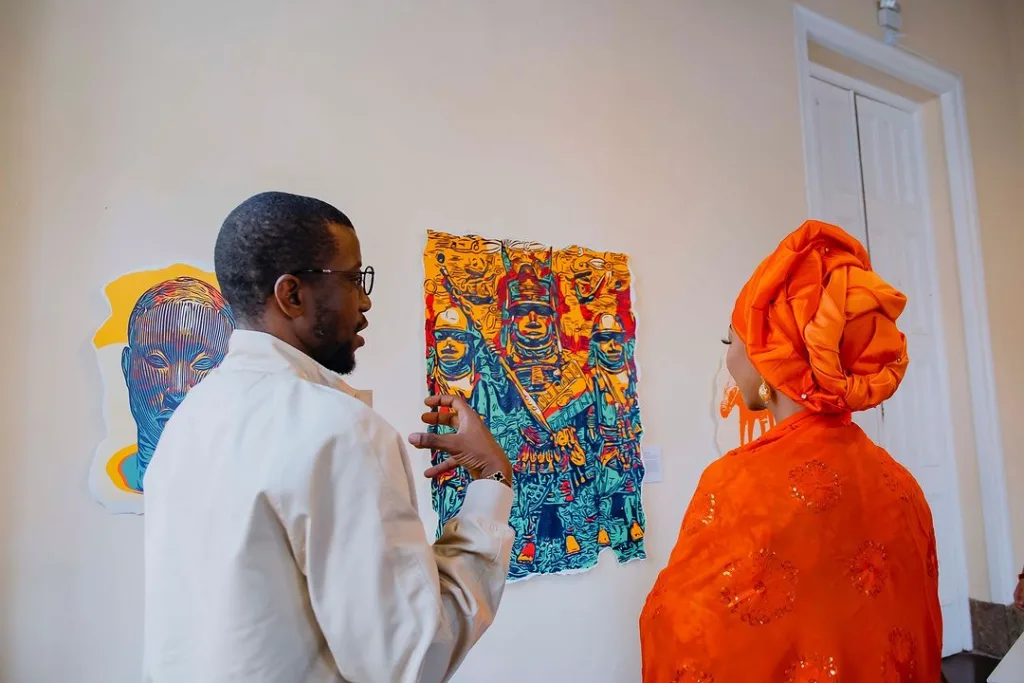Nigerian contemporary artist Osa Seven unveiled his groundbreaking exhibition, 1897: An Urban Contemporary Representation of Historic Benin Art, at the Muhcab Museum of Afro-Brazilian History and Culture.

The exhibition commemorated the 1897 Benin Expedition, a tragic chapter in African history marked by the colonial looting of Benin’s cultural treasures. Osa Seven reinterpreted these historical artifacts through a contemporary lens, merging his street-art aesthetic with bold colours, intricate designs, and unconventional materials. The result was a series of evocative works that underscored the resilience of the Benin Kingdom while critiquing the lasting scars of colonial exploitation.
Osa Seven’s work struck a chord with audiences, particularly in Brazil—a country with deep cultural ties to Africa. Brazil is also the largest population of African descent outside the continent. By reclaiming this historical narrative, the exhibition fostered a dialogue about shared heritage and the ongoing impact of colonial histories.


“Artists are storytellers,” Osa Seven reflected. “This journey has been about connecting the past with the future. Sharing these stories and seeing their impact here in Brazil has been both humbling and inspiring.”
The exhibition’s success extended beyond its artistic merit. It served as a cultural bridge, strengthening ties between Nigeria and Brazil. This further sparked conversations about identity and reclamation in a globalized world. Visitors also described the experience as transformative, with many noting the powerful juxtaposition of traditional Benin themes and modern urban art.

As 1897 closes in Rio, its global tour promises to expand its reach and impact. Future stops will include Japan, France, the United States, and Nigeria. This ambitious journey ensures that the story of Benin’s cultural heritage continues to inspire and educate audiences worldwide.
Osa Seven’s 1897 is more than an art exhibition; it is a testament to the enduring power of cultural resilience and a poignant reminder of the importance of preserving and honouring African histories.


